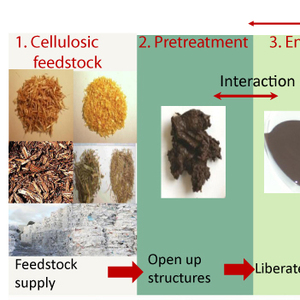Dyadic, SEKAB: Enzyme research project concludes in Sweden




DYADIC INTERNATIONAL INC.
September 28, 2012
BY Holly Jessen
Advertisement
Advertisement
Related Stories
DHL Global Forwarding and Hapag-Lloyd have signed a three-year framework agreement for Scope 3 greenhouse gas (GHG) emission reductions resulting from the use of sustainable marine fuels within Hapag-Lloyd's fleet.
Darling Ingredients announces agreement to sell approximately $125 million in production tax credits
Darling Ingredients Inc. on Sept. 29 announced an agreement to sell $125 million of production tax credits to a corporate buyer. These credits were generated under the Inflation Reduction Act by the company’s Diamond Green Diesel joint venture.
In its September Short-Term Energy Outlook, the U.S. EIA forecasts U.S. total distillate inventories to end 2025 and 2026 at lower levels than previous years. The agency’s estimates for distillates includes biodiesel and renewable diesel.
EIA reduces 2025 forecasts for biodiesel, renewable diesel production
The U.S. EIA reduced its outlook for 2025 biodiesel and renewable diesel production in its latest Short-Term Energy Outlook, released Sept. 9. The 2026 production outlook for other biofuels, which includes SAF, was revised up.
The Canadian government on Sept. 5 announced it is taking action to assist the country’s canola and agriculture producers by introducing a new biofuel production incentive and amending the country’s Clean Fuel Regulations.





